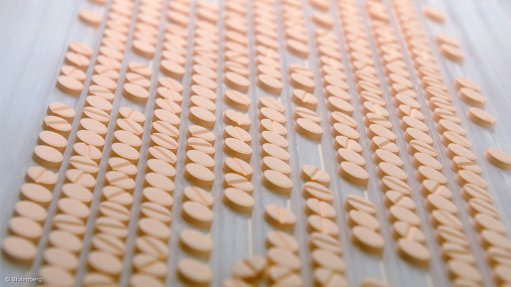
The completion of impending transactions with global healthcare companies MSD and GlaxoSmithKline (GSK) would add further momentum to JSE-listed pharmaceutical manufacturer Aspen Pharmacare Holdings’ international growth strategy, CEO Stephen Saad said on Thursday.
The transactions would enable Aspen to establish its own businesses in Russia, other former Soviet republics and across Europe, while also enabling the group to extend its influence in Latin America and Asia.
“The transactions concluded, and still to be concluded, in 2013 will be the most transformational in the company’s history to date,” Saad said at a presentation of the group’s financial results for the year ended June 30, held in Johannesburg.
The transactions included the acquisition of a primarily Netherlands-based active pharmaceutical ingredient manufacturing business from MSD for €36-million plus the value of inventory to be effective on October 1. Aspen also had the option to acquire a portfolio of 11 branded finished dose form molecules for $600-million, with the most likely acquisition date being December 31.
Further, Aspen would, on December 31, acquire GSK’s Arixta and Fraxiparine brands worldwide, with the exception of China, India and Pakistan, after which it would also acquire the specialised production site that manufactures these products on April 30, 2014, for a total value of £700-million.
Meanwhile, Aspen would also acquire from Nestlé certain licence rights to infant nutritional products intellectual property, net assets which included a production facility in Mexico, and shares in infant nutritional businesses in several countries in Latin America.
This acquisition was expected to become effective on October 28; however, the acquisition of certain rights to intellectual property licences and net assets in the infant nutritional products business presently being concluded by Pfizer, in certain Southern African territories, including South Africa, remained subject to the approval of the South African competition authorities.
During the financial year, Aspen achieved year-on-year operating profit growth of 28% to R5-billion and revenue growth of 27% to R19.3-billion, with the largest revenue contribution coming from its Asia Pacific business, which saw a 26% revenue hike to R7.6-billion, making up 37% of the company’s total gross revenue.
Meanwhile, normalised headline earnings advanced 32% year-on-year to R3.8-billion and normalised diluted headline earnings per share were up 31% at 836.2c, deputy CEO Gus Attridge reported, pointing out that, while all Aspen’s business segments recorded growth in revenue and operating profit, the international business had led the way.
Aspen’s international business revenue increased by 48% to R3.7-billion, while earnings before interest, taxes, depreciation and amortisation (Ebitda) increased by 59% to R1.5-billion.
Latin America showed the biggest advance, with sales to customers climbing 53% to R1.6-billion.
Meanwhile, revenue from the group’s South African business grew by 20% to R7.4-billion, while Ebitda increased by 11% to R2-billion.
Revenue in Aspen’s South African pharmaceutical division rose 20% to R6.2-billion driven by organic growth and a strong contribution from new product launches in the private sector, Attridge said.
In the public sector, expanding demand for antiretrovirals (ARVs) added to the growth momentum although the greater weighting of revenue from low margin ARVs was the largest factor in the contraction of margin percentages. The weakening of the rand and rising inflation in administered costs also put pressure on margins, although this was partially relieved by gains in production efficiency and procurement savings.
Attridge added that the group’s South African consumer division delivered an 18% increase in revenue with nutritionals being the biggest growth driver.
Aspen’s gross revenue in sub-Saharan Africa increased by 26% to R2.1-billion driven mostly by expanded promotional support. The region saw a negative Ebitda growth during the first six months of the year; however, this was reversed during the second half, which saw a 16% increase, bringing the result for the complete period to R252-million, which was an increase of 2%, Attridge explained.
Over the next period the focus in sub-Saharan Africa would be on continuing the progress made in the second half of this year, Saad said.
“Provided there are no material changes in the prevailing macroeconomic conditions, in the forthcoming year it is expected that the solid growth platform already established in all regions will be strongly supplemented by contributions to the International and Asia Pacific territories from the take-on of the impending transactions, particularly in the second half of the year,” he said.
Debt levels were expected to initially be close to Aspen’s self-imposed limits, but this gearing was expected to reduce quite rapidly through strong operational cash flows.